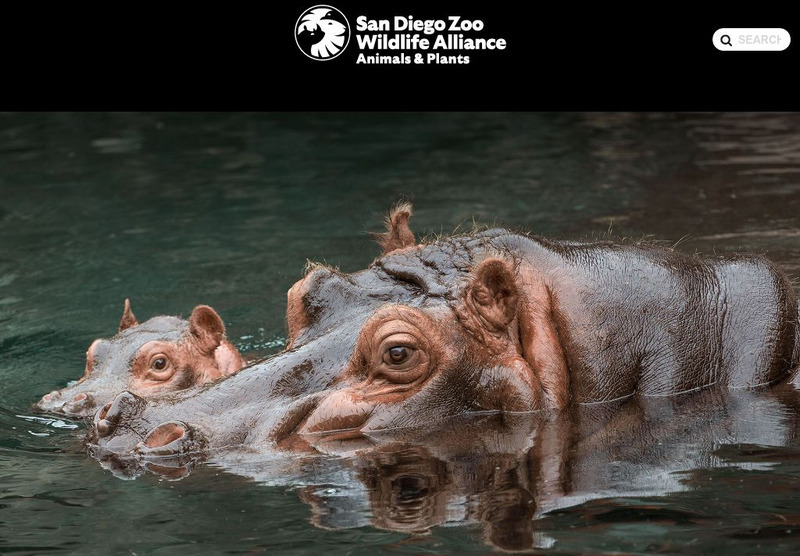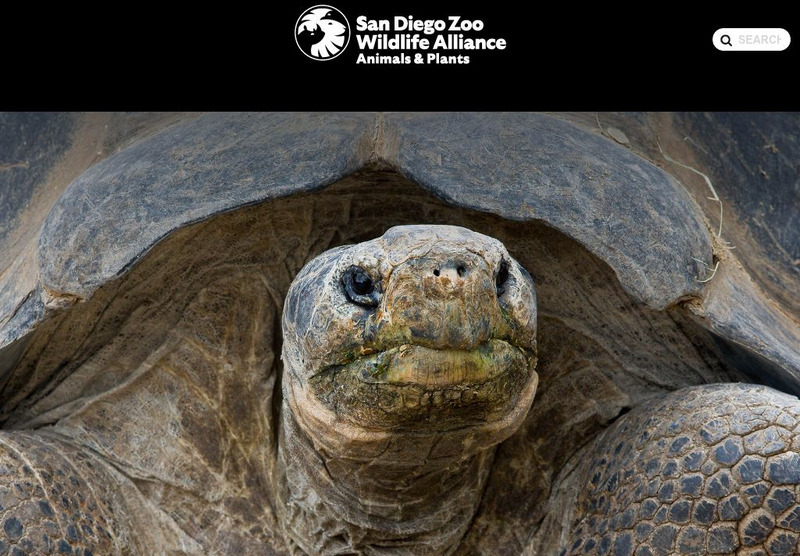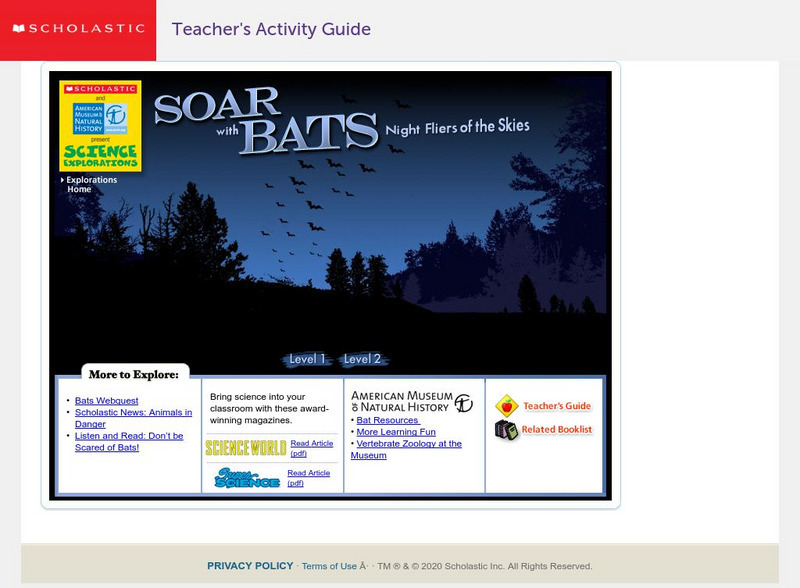Smithsonian Institution
National Museum of Natural History: Zebra
Brief overview of the zebra and accompanying photos demonstrate the physical adaptations that allow this animal to survive in its habitat.
Smithsonian Institution
National Museum of Natural History: Hall of Mammals: Red Panda
Brief overview of the red panda and accompanying photos demonstrate the physical adaptations that allow this animal to eat and survive in its habitat.
Smithsonian Institution
National Museum of Natural History: Hall of Mammals: Beaver
A brief overview of the beaver and accompanying photos demonstrate the physical adaptations that allow this animal to eat and live in its habitat.
Smithsonian Institution
National Museum of Natural History: Hall of Mammals: Bison
Brief overview of the bison and accompanying photos demonstrate the physical adaptations that allow this animal to survive in its habitat.
Smithsonian Institution
National Museum of Natural History: Hall of Mammals: Hippopotamus
Brief overview of the hippopotamus and accompanying photos demonstrate the physical adaptations that allow this animal to survive in its habitat.
Smithsonian Institution
National Museum of Natural History: Hall of Mammals: Jaguar
Brief overview of the jaguar and accompanying photos demonstrate the physical adaptations that allow this animal to hunt for its prey.
Smithsonian Institution
National Museum of Natural History: Hall of Mammals: Giant Panda
Brief illustrated overview of the giant panda and an accompanying video demonstrate the physical adaptations that allow this animal to eat and why it has become an endangered species.
Smithsonian Institution
National Museum of Natural History: Hall of Mammals: White Tailed Deer
Brief overview of the white-tailed deer and accompanying photos demonstrate the physical adaptations that allow this animal to mate and feed their babies.
ClassFlow
Class Flow: Sonoran Desert
[Free Registration/Login Required] This flipchart is an introduction/review of the climate, the plant life and the animals of the Sonoran Desert. Students will use Activotes, the eraser tool and the pen tool to answer questions about how...
PBS
Pbs: Nova: A Plant With Smarts
Not only are orchids tricky when it comes to being pollinated, they also have some tricks that help them survive in a competitive environment. Discover how orchids outwit insects to reproduce and how they have adapted to survive in their...
Discovery Education
Discovery Education: Plants
The Discovery Channel provides numerous lesson plans dealing with plants. Content is organized by grade level, but all lesson plans include suggestions for adaptations for older or younger audiences.
PBS
Pbs Teachers: Scientific American: Spiders! Amazon Tales
Explore several spider species and learn about their adaptations to the world around them. Design a new species of spider, with adaptations required to survive in a particular habitat.
Concord Consortium
Concord Consortium: Stem Resources: Natural Selection
Build a dam in the middle of an ecosystem and observe how the population of plants and animals adapt to their new environment with this science simulation. Learn how the populations adapt to survive in their new habitat. Then remove the...
Sea World Parks & Entertainment
Sea World: Raptors
Outlines the characteristics of birds of prey, including classification, habitat, behaviors, and conservation. Helps students identify with these birds by integrating a list of "Books for Young Readers." Information at a level of upper...
Lincoln Park Zoo
Lincoln Park Zoo: Barn Owl
An excellent account of the Common Barn Owl. This site provides information on the owl's description, status, habitat, niche, life history, as well as facts on special adaptations they have acquired.
Other
Manitoba Model Forest Network: Wonderful World of Boreal Woodland Caribou [Pdf]
This 60-page Science unit on Manitoba's boreal woodland caribou looks at all aspects of this animal, for example, a day and a year in its life, its habitat, diet, how it maintains its population, adaptations it has made, and threats it...
National Geographic Kids
National Geographic Kids: Animals: Bactrian Camel
Great site for youngers researching the Bactrian camel. Video clip, photos, and easy to read facts about habitat, young, enemies, food, adaptation to environment, and humps!
Sea World Parks & Entertainment
Sea World: Infobook: Penguins
Brought to you by SeaWorld, this is a look at all facts related to penguins! Main topics include habitat, physical characteristics, senses, adaptation, diet, reproduction, young, conservation, and more. Click on any of these topics to...
PBS
Pbs Learning Media: Gila Monster
This video segment from Outdoor Nevada looks at the Gila monster's behavior, habitat, and unique adaptive characteristics. [3:55]
San Diego Zoo Global
San Diego Zoo: Hippotpotamus
This resource presents detailed information about the hippotpotamus, including several photos and an audio clip.
Tramline
Virtual Field Trip: Temperate Forest Biome
Travel with your students on a Virtual Field Trip to learn about Temperate Forest Biomes. You will also discover many informative and interactive websites.
San Diego Zoo Global
San Diego Zoo: Galapagos Tortoise
This resource provides detailed information about the Galapagos tortoise, as well as several pictures.
Scholastic
Scholastic: Science Explorations: Soar With Bats: Night Fliers of the Skies
Two levels of exploration take you on a nighttime bat investigation, offer important vocabulary and definitions, provide a library of articles, and list ideas for bat research and observations in parks and zoos.
Other
Ursus International Conservation Institute: Polar Bears
Read an in-depth description of polar bears. Includes numerous images.
Other popular searches
- Adaptation Habitat
- Animal Adaptation Habitat
- Penguins Adaptation Habitat
- Penguin Adaptation Habitat
- Animal Habitat & Adaptations
- Bird Habitat and Adaptation











